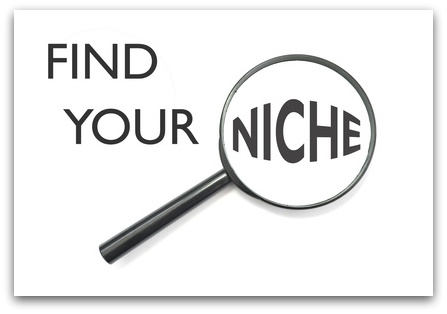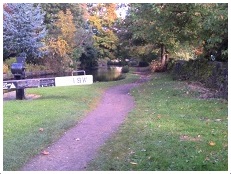Why do we have to niche our services?
In this weeks guest post Julie Crowley focuses on that subject of your niche.
Why do we have to niche our services?
By Julie Crowley

I know that the general advice is to niche your business services so that clients can find you (/me) and ‘we’ stand out from ‘the crowd’. But which crowd?
I am pretty sure that most if not all of us have, at one time or another, questioned this aspect of our ‘business’ (versus service provision). Do you agree? Should you and I niche to satisfy the marketing advisors?
But maybe it isn’t about the clients, or the marketers or about our business at all – but about us, ourselves.
I have this internal debate with myself on a regular basis! Should I? Shouldn’t I? And why (not)?
I decide – at that point – one way or the other. I can slip back on what I have decided too at times! But, like my clients, things change. I change. I grow, learn, develop ideas and try new things. That’s what coaching is about after all!

But niching…it’s difficult (at least for me) to decide what you are, or I am, what we want – and can – offer our clientele.
Like many of you, I guess we want to offer whatever we can, to whoever we can and get them where they want to be! Our focus, our aim, our own SMART targets!
But limiting ourselves as it might seem – is that the answer? We suggest to clients that they explore their own potential, try lots of things or just focus on the one straight (!!!) path to their goals. To our goals.
So niching is an oft-appearing cliché for me in business. It’s here now again, raising it’s (ugly?) head. But I think this is healthy and useful, it keeps me on the ball, it keeps me focused on my clients and it helps me look at my own journey and development too. Keeping my eye on where I am going – and checking the direction is right for me, making sure my steps align with my goals too!
So what niches are my options? What do I want to offer, or show to clientele that I can offer? Who am I now that I wasn’t last year, or at the start of my business services? Who do I want and aim to be – and when?
Just like our clients, we are always looking forward, monitoring goals, managing steps, acknowledging achievements and hopefully too, giving ourselves those ever-necessary (and fun!) rewards.
I have niched into careers, and something I am still keen on but no longer my whole focus. Why I wonder? Because it did work for clients – it gave them/gives them a clear trigger, a clear focus on the ‘problem’ that’s arisen for them hence they are looking for guidance, motivation, inspiration or/and the rest of what coaching can offer.
I have focused on managing the psychological self – self awareness, personal power, personal development and personal change. Psychology plays a big part in my practices.
I am unsure if niches are just short phrases or words that clearly spell out what the outcome might be for all to see, or whether it is to help me as a life coach decide what I do best or my current focus.

I will think on this one, as my clients do, work through the step by step action plan, monitoring and acknowledgements and ponder the decision of what my next niche might be. And who it will be for, my clients, my professional self, or society at large to judge me and decide my worth in the coaching forum! For me my clients needs come first so that is where I will be starting …
About Julie Crowley
Julie Crowley, Personal Counsellor and Life Coach based in Lees, Oldham as Clear Mind Life Coaching & Counselling. My aim as a coach is to help clients explore their potential and find out their real goals in life – or at least now! Developing their “personal power” to create the life they want to live by exploring their inner self – practically, emotionally, psychologically and leaving with more awareness than they came with for more effective steps “For a better personal future” and the tools and techniques to use in future …
More information:
My website and blog www.clearmindco.co.uk offers comment and ideas about people, thoughts, feeling and life plans …as well as counselling concepts and focus too.
I am also on Facebook – Twitter – Linked in – CLEAR Connections


 Coaching on the other hand, although it does involve talking is firstly not a therapy per se (although counselling skills are often required when barriers and obstacles arise) but more a discussion, a meeting -sharing ideas and thoughts, clarifying details and more proactive in moving along your life path towards your goals from a firm(ish) foundation.
Coaching on the other hand, although it does involve talking is firstly not a therapy per se (although counselling skills are often required when barriers and obstacles arise) but more a discussion, a meeting -sharing ideas and thoughts, clarifying details and more proactive in moving along your life path towards your goals from a firm(ish) foundation.